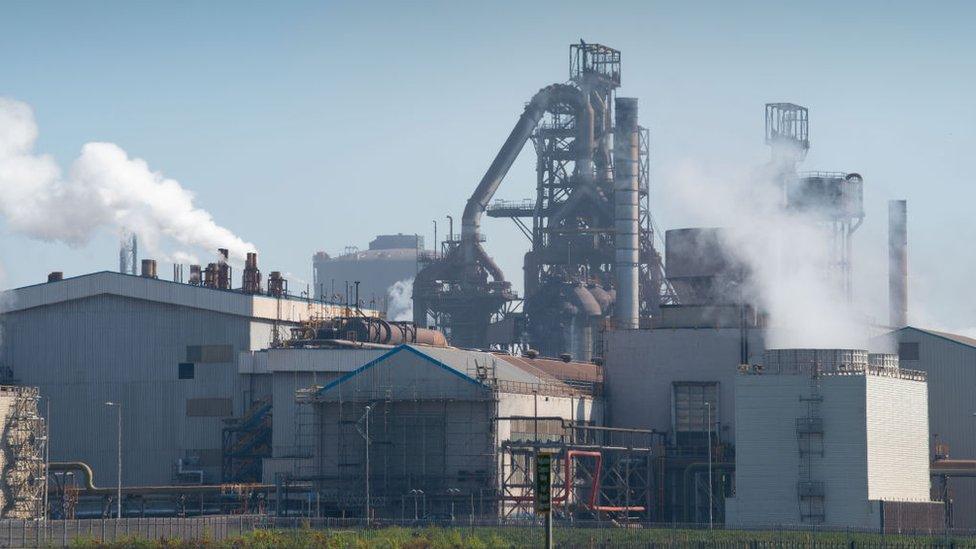Tata Steel: Thousands of job losses must be managed - Drakeford
- Published
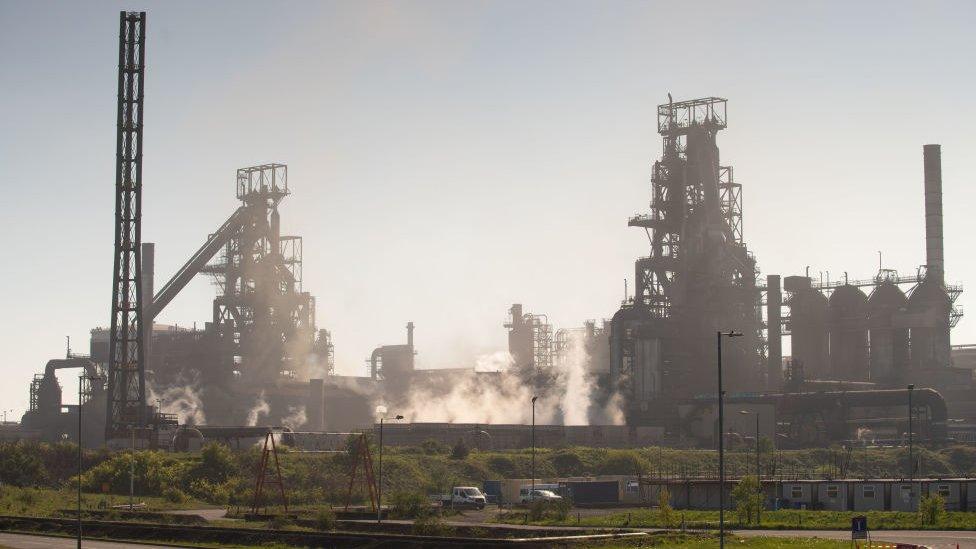
Tata Steel employs 3,000 people in Port Talbot
First Minister Mark Drakeford said it will be a "very anxious morning" for thousands of people waiting to hear if their jobs are safe.
Tata Steel in Port Talbot is seeking UK government funding to switch its coal furnaces to zero-carbon electric ones.
While the deal would secure £1bn for the site, it could mean up to 3,000 UK job losses.
Mr Drakeford said there should be "a transition plan" to make job losses "manageable".
He told BBC Breakfast: "This will be a very anxious morning for many, many families in Port Talbot waiting to see the detail of whatever has been agreed between the UK government and the company.
"On the one hand, it does seem that there is to be investment at the plant that will secure the long-term future of jobs in that town," he said. "But if the price is thousands of jobs to be lost, then that is a very high price."
Speaking on BBC Radio Wales Breakfast on Friday morning, Mr Drakeford said the Welsh government has not been involved in negotiations between Tata Steel and the UK government.
He said the deal would mean "the jobs that remain in Port Talbot should be jobs that are secure and reliable".
Mr Drakeford said Port Talbot and Tata Steel "have to play their part" in decarbonisation but that he has spoken to the UK Prime Minister about the importance of sustaining steel production in the UK.

Mr Drakeford said the details of the deal would be very important for Port Talbot
In an announcement on Friday, ministers are expected to say the deal is intended to secure the survival of the plant which employs half of Tata Steel's 8,000-strong workforce.
Tata warned last year that its UK operations were under threat unless it secured government funding to help it move to less carbon-intensive electric arc furnaces.
But unions complained they had been shut out of negotiations over the deal.
Charlotte Brumpton-Childs, GMB national officer, said government intervention was "long overdue" but it was "unacceptable" to impose a programme without consulting workers.
"GMB has urged ministers and Tata Steel to have a longer-term view on the decarbonisation of steel," she said. "It is not a just transition if thousands of jobs are sacrificed in the name of short-term environmental gains."
She said the union supports modernisation and decarbonisation of the industry but " ignoring technologies outside of electric arc furnaces will mean tens of thousands of people will lose their livelihoods".
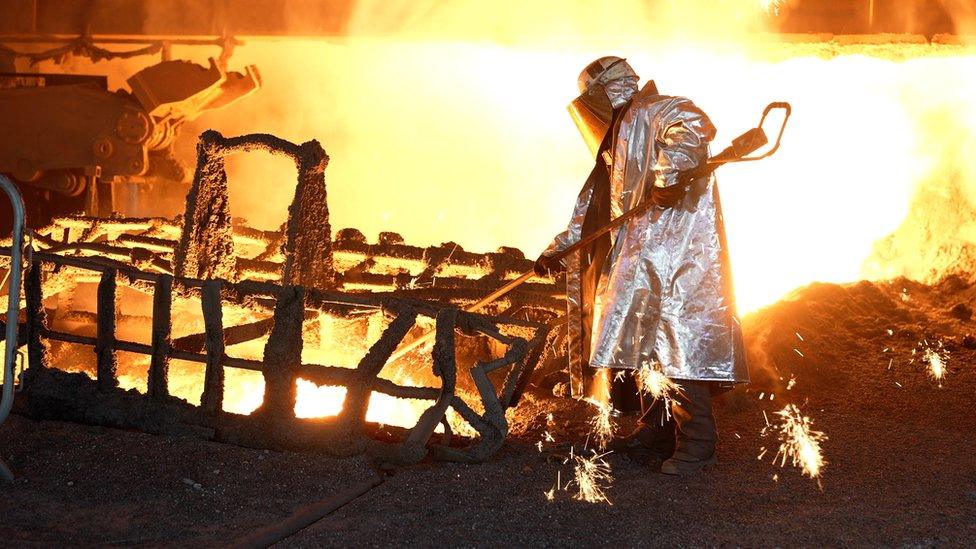
The company's blast furnaces produce huge amounts of carbon dioxide, which drives global warming
Dr Simon Cran-McGreehin, head of analysis at the Energy and Climate Intelligence Unit (ECIU), said: "The government may be trying to do the right thing here, but if this deal leads to 3,000 job loses it can't be right.
"Having a long-term vision that leads to hydrogen-based steel manufacture at Port Talbot, as well as the arc furnaces that recycle used steel, could protect many more jobs."
Gary Smith, general secretary of the GMB union said: "This deal will have devastating consequences for jobs and workers. It will rip the heart out of the Port Talbot community.
"For years, GMB has called for investment in this critically important industry. Instead of listening the Government dithered and delayed until it is too late, and thousands of workers, their families and communities will pay the price.
"Our country cannot be secure without a functioning domestic steel industry and workers must be at the heart of plans to modernise it," he said. "Once again, we see how so-called transitions are anything but fair or just for working people."

Sign up for our morning newsletter and get BBC News in your inbox.

Related topics
- Published15 September 2023
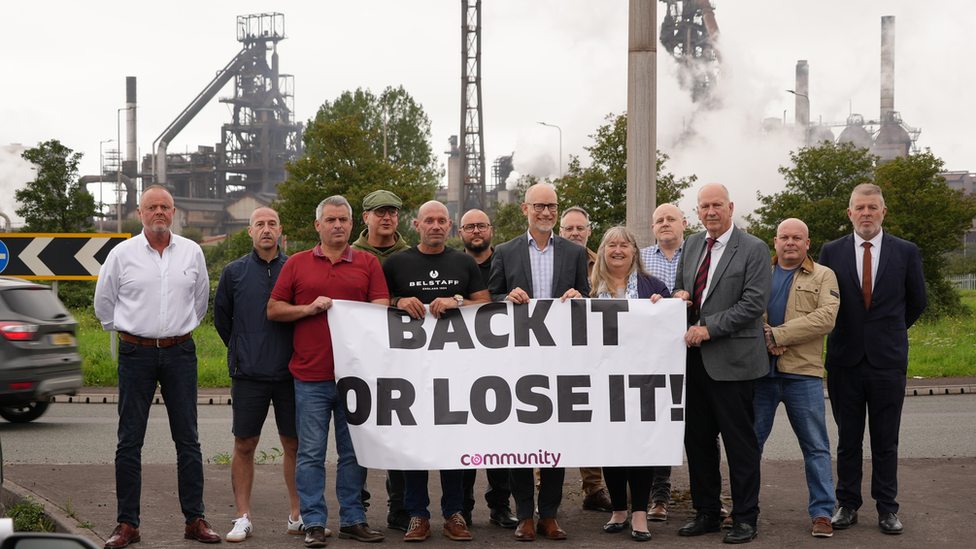
- Published17 February 2023
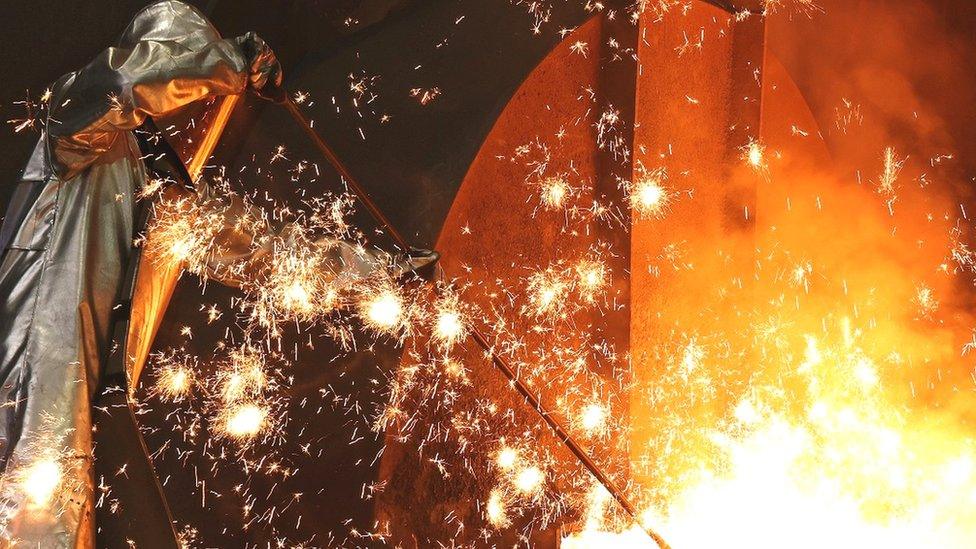
- Published3 September 2023
